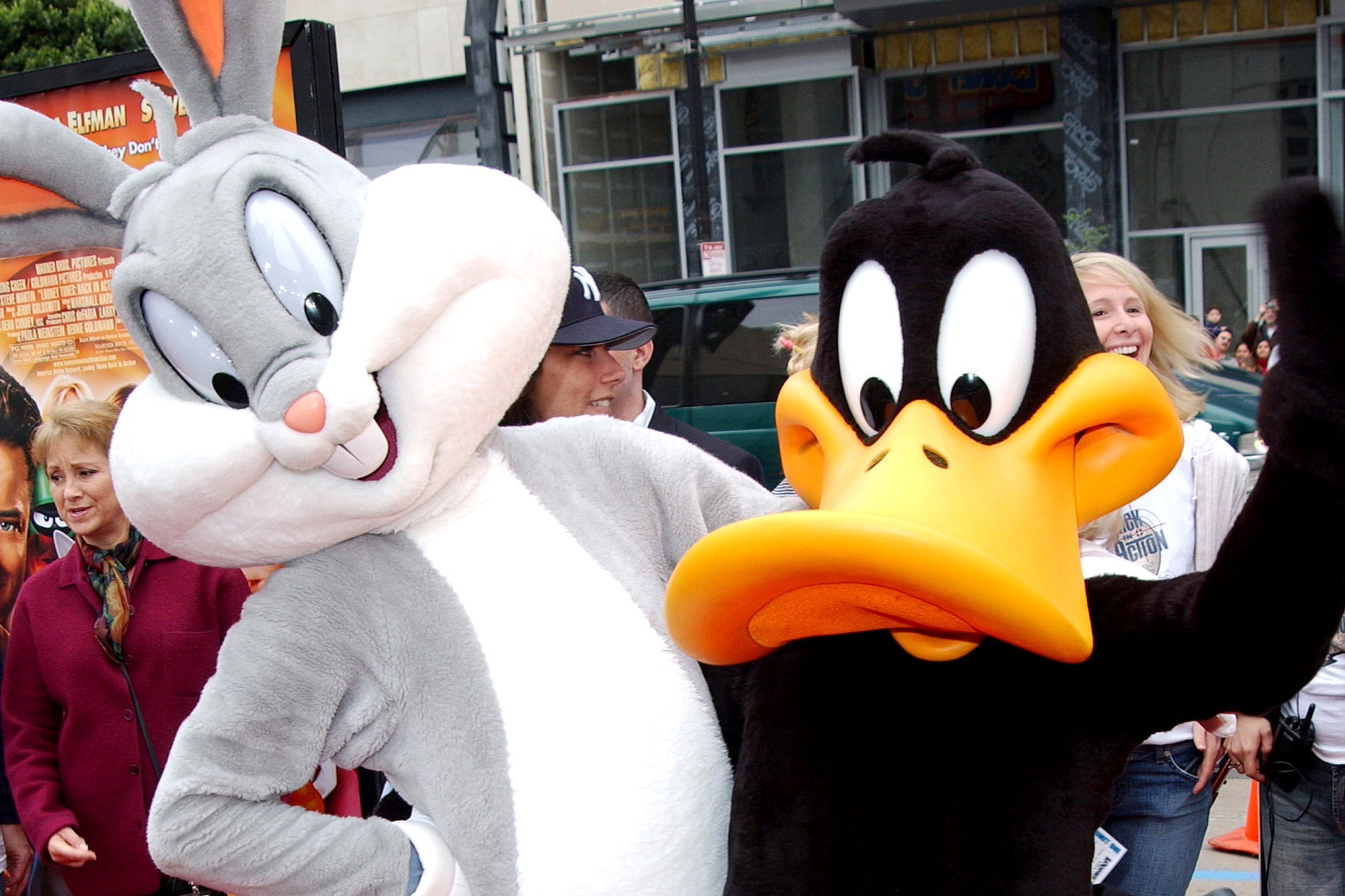How did we reach the point at which Sen. Clinton, the clear Democratic front-runner six months ago, needs clear wins in Texas and Ohio to mute the calls for her to end her campaign?
There’s no unified field theory that answers this question: You can give more or less weight to Obama’s political magnetism, the tactical and strategic miscalculations of the Clinton campaign, the delegate-allocation rules that weakened the punch of Clinton’s big-state wins, the crucial difficulty of a former first lady who embodies Restoration competing in an election in which change is the watchword. And here’s another explanation for this remarkable reversal of fortune, one that represents for me one of the few really reliable rules of presidential political warfare: Bugs Bunny always beats Daffy Duck.
As shaped by genius animator Chuck Jones—he didn’t create the Warner Bros. icons, but he gave them their later looks and personalities—Bugs and Daffy represent polar opposites in how to deal with the world. Bugs is at ease, laid back, secure, confident. His lidded eyes and sly smile suggest a sense that he knows the way things work. He’s onto the cons of his adversaries. Sometimes he is glimpsed with his elbow on the fireplace mantel of his remarkably well-appointed lair, clad in a smoking jacket. (Jones once said Cary Grant was his inspiration for Bugs. Today it would be George Clooney.) Bugs never raises his voice, never flails at his opponents or at the world. He is rarely an aggressor. When he is pushed too far and must respond, he borrows a quip from Groucho Marx: “Of course, you realize this means war.” And then, whether his foe is hapless hunter Elmer Fudd, varmint-shooting Yosemite Sam, or a raging bull, Bugs always prevails.
Daffy Duck, by contrast, is ever at war with a hostile world. He fumes, he clenches his fists, his eyes bulge, and his entire body tenses with fury. His response to bad news is a sibilant sneer (“Thanks for the sour persimmons, cousin!”). Daffy is constantly frustrated, sometimes by outside forces, sometimes by his own overwrought response to them. In one classic duel with Bugs, the two try to persuade Elmer Fudd to shoot the other—until Daffy, tricked by Bugs’ wordplay, screams, “Shoot me now!”
“Hmmm,” he adds a moment later in a rare bit of self-scrutiny. “Pronoun trouble.”
Now here’s the Obama-Clinton parallel: In every modern presidential election in which the candidates have personified a clear choice between Bugs Bunny and Daffy Duck, Bugs has prevailed.
Go back to 1960, the first campaign in which television was the clear dominant medium. John “Bugs” Kennedy was cool, restrained, ironic. Richard “Daffy” Nixon was brooding, suspicious, scowling. Look at 1980, when Ronald Reagan’s sunny approach to the campaign and to the world (“Our best days are yet to come”) stood in sharp contrast to President Jimmy Carter’s talk of a crisis of the spirit. (Maybe the cartoon duel helps explain why Jimmy Carter had his famous battle in a boat with a rabbit.)
Or think about 2000, when George W. Bush suggested a candidate who could easily live with defeat, as opposed to Al Gore, who seemed wound far tighter. In the most memorable debate moment that year, Al Gore stood up and began walking behind Bush as Bush was answering a question, almost as if Gore were stalking his opponent (the better to dramatize the height difference, one Gore aide told me later). Bush looked over his shoulder, offered a slight “Oh, hi there!” nod, and the debate was effectively over. It was a classic Bugs vanquishing.
Not every campaign offers such a contrast. And sometimes political figures change their cartoon stripes: Bill Clinton in 1992 was clearly Bugs. This year, he has turned into Daffy as Hillary’s surrogate, with his red-faced battling, his assaults on the electoral process in Nevada and now in Texas, his warning of “Don’t let them take it away in the dark!”
Is there any doubt about who is Bugs and who is Daffy between Hillary Clinton and Barack Obama? When Clinton insisted that Obama not simply “denounce” Louis Farrakhan but “reject him,” Obama shrugged. Well, he said, I don’t really see any difference, but if you think there is, I reject and denounce. Indeed, throughout the debate, Obama leaned back and asked for time with the flick of a finger, as if summoning a waiter for another bottle of wine. Clinton, meanwhile, leaned forward, pushing her points with grim determination.
The Bugs-Daffy dichotomy gets intriguing when you try to apply it to the general election. If Clinton pulls out the nomination, it will be Daffy vs. Daffy. There is no doubt that John McCain takes on politics with a Daffy-like suspicion of the corrupt, feckless folks about him. If Obama prevails in the primaries, we will have a dramatic Bugs-Daffy face-off. And it may be that McCain will be the candidate to break the losing Daffy pattern, because he’ll be able to argue successfully that in a dangerous world, you need a president more in touch with the dark side of human nature. This argument might even work for Clinton if the primary battle goes on past tonight. Especially given the current Bugs in the White House.
